Did They Mention
The Music?
Did They Mention
The Music?
 HENRY
HENRY 
MANCINI
with Gene Lees

First Cooper Square Press edition 2001
This Cooper Square Press paperback edition of Did They Mention the Music is an unabridged republication of the edition first published in 1989 in Chicago, with the addition of a new postscript by Gene Lees. It is reprinted by arrangement with the author.
Excerpt from Yes, I Can: The Story of Sammy Davis, Jr., copyright 1965 by Sammy Davis. Published by Farrar, Straus & Giroux. Reprinted by permission.
Excerpt from Film Score, copyright 1979 by Tony Thomas. Published by A. S. Barnes. Reprinted by permission.
Excerpt from Los Angeles Times, May 10, 1974. Copyright 1974 by Charles Champlin. Reprinted by permission.
Excerpt from Premiere Magazine, October 1987. Copyright 1987 by Donald Fagen.
Reprinted by permission.
Herman Stein interview originally published in CinemaScore 13/14; copyright 1985 by Randall D. Larson. Reprinted by permission.
Lyrics from The Sweetheart Tree copyright 1971 by East Hill Music, Inc. Reprinted by permission.
Lyrics from Sometimes copyright 1965 by Northridge Music Co., Inc. Reprinted by permission.
Copyright 1989 by Henry Mancini and Gene Lees
New postscript copyright 2001 by Gene Lees
All rights reserved.
No part of this book may be reproduced in any form or by any electronic or mechanical means, including information storage and retrieval systems, without written permission
Published by Cooper Square Press
An Imprint of the Rowman & Littlefield Publishing Group
150 Fifth Avenue, Suite 817
New York, New York 10011
Distributed by National Book Network
Library of Congress Cataloging-in-Publication Data Available
ISBN: 978-0-8154-1175-8
 The paper used in this publication meets the minimum requirements of American National Standard for Information SciencesPermanence of Paper for Printed Library Materials, ANSI/NISO Z39.481992.
The paper used in this publication meets the minimum requirements of American National Standard for Information SciencesPermanence of Paper for Printed Library Materials, ANSI/NISO Z39.481992.
Manufactured in the United States of America.
To Ginny
The journey could not have been made
without our love for each other.
Contents
by Gene Lees
by Henry Mancini
by Gean Lees
by Gene Lees
Preface
by Gene Lees
November 12, 1987
The great scar of the Grand Canyon passes slowly under the jets wings as it courses eastward at 35,000 feet. Henry Mancini doesnt even look out the window. Hes seen it all before. He flies far too much, has been doing it for years now, to record his movie scores or conduct symphony orchestras, to perform in big cities and small or at the White House for three different presidents, or in London for members of the royal family. Now he is going home. Not to the big house in Holmby Hills, or the other one he owns in Malibu, or the third in Vail, Colorado, which he visits mostly in the winter, to ski. But to his original home in Pennsylvania.
I first met Henry Mancini in Chicago in 1959, when he was on a promotion tour for the Peter Gunn album and I was the editor of down beat magazine. This was shortly before the success of Breakfast at Tiffanys, and the song that has ever since been identified with it, Moon River. It was still possible for songs with tunes as melodic as that and lyrics as literate as those Johnny Mercer attached to it to be hits in America; the great American song tradition had not yet been effaced by rock and roll.
The mood of the man during our first encounter has stayed with me all these years, though I am not sure what to call it. He seemed wary. Or perhaps he was merely baffled by his sudden fame. If he was suspicious, no doubt it was because he had been under assault from elements of the East Coast jazz critical establishment because of Peter Gunn.
His detractors were so busy deploring what Mancini had done with jazz that they overlooked what he was doing for it. Up until that time, film scoring was almost entirely derived from European symphonic composition. Mancini changed that. More than any other person, he Americanized film scoring, and in time even European film composers followed in his path.
Although others had used elements of jazz in film underscore before him, it was Mancini who opened the way for the full use of this music in drama. Until then, the extent of jazz use in film was pretty much limited to an alto saxophones moaning a heavy-handed depiction of a womans hip-swinging walk. Mancini proved that the vocabulary of jazz could be used to express tenderness, romance, fear, laughter, pensiveness. He established before a broad American public, and before the executives of the communications industry, the extraordinarily expressive range of this music. But his purpose was not to write jazz, any more than it was to write symphonies; it was to underscore drama. Everything I have ever written comes from the picture, he has repeatedly asserted. Mancini was the principal figure in developing what could be called the song score. Whereas earlier composers in the field had tended to use classical, i.e., formal, techniques of thematic development and non-melodic orchestral writing (with exceptions, of course), Mancini began writing scoressuch as that of Breakfast at Tiffanys and those for the Pink Panther seriesthat contained almost as many fully developed song melodies as a Broadway musical. And he used all sorts of devices of the dance bands to set these melodies off, from jazz walking bass to Caribbean dance rhythms. That he was capable of a quite different kind of writing is evident in the score for the suspense mystery Arabesque, which is comparatively abstract, or that for The White Dawn, or the stripped and austere score for the Paul Newman version of The Glass Menagerie.
The gift of writing melody is a somewhat mysterious one. Even some of the most trained and skillful composers lack it. Conversely, the melodic gift is not the only criterion of musical worth: Tchaikovsky had a torrential melodic talent far beyond anything Beethoven possessed, but no one would argue that Tchaikovsky was the greater composer. Yet the melodic gift is not to be undervalued. It is the gift of Kern, Gershwin, Arlen, Youmans.
In Breakfast at Tiffanys Mancini was revealed as an inventive and original writer who enormously expanded the vocabulary of modern orchestration. An awareness of classical orchestration was wedded to a fluency in American big band writing, to sometimes startling effect. This combination made Mancini the first film composer to emerge from the anonymity of that profession and become a public figure, a man known worldwide, with record sales in the millions and a roomful of Grammys, Oscars, and other awards, and a conductor of concerts everywhere.
What did being an only child do to you? I asked him just before our plane landed.
I had to make do, learn to do things myself. I can still make it alone. Its just having to do for yourself.
There was no welcoming committee when we landed at the Pittsburgh airport; he hadnt asked for it. Mancini never has an entourage with him. He requires only his road manager, Jerry Grollnek, and a key group of musicians with himthe rhythm section, the lead trumpet, and a saxophonist. They are a close-knit group who have been with him for years. But they dont always travel with him. They meet him at the job. We were driven to the newly built Vista Hotel, where we checked into our rooms. The first rehearsal was set for the following day.
Next page

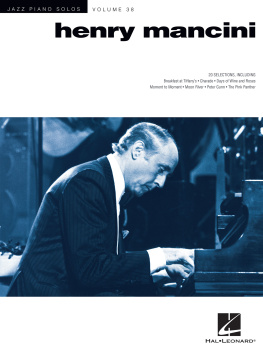
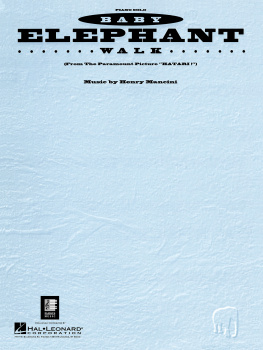
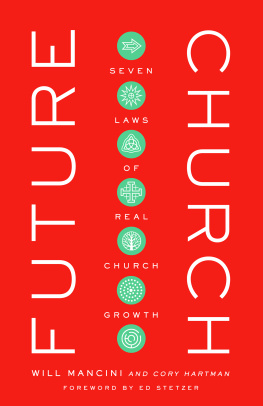
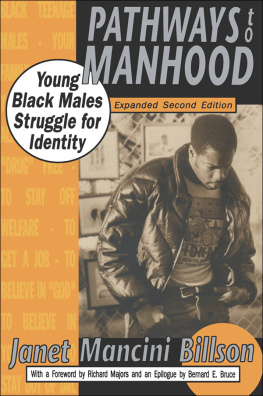
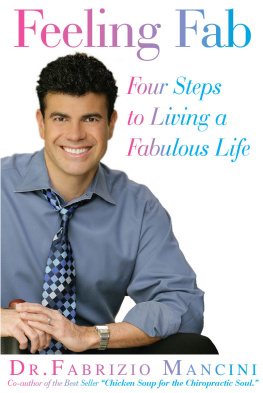
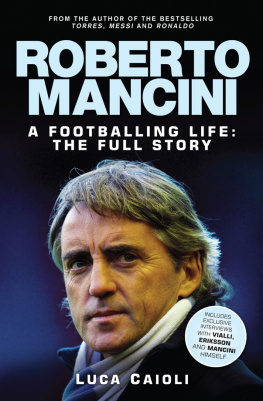



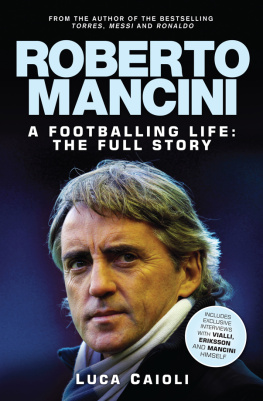
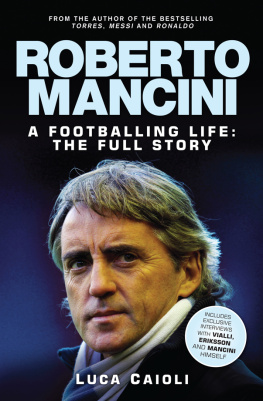
 HENRY
HENRY 
 The paper used in this publication meets the minimum requirements of American National Standard for Information SciencesPermanence of Paper for Printed Library Materials, ANSI/NISO Z39.481992.
The paper used in this publication meets the minimum requirements of American National Standard for Information SciencesPermanence of Paper for Printed Library Materials, ANSI/NISO Z39.481992.